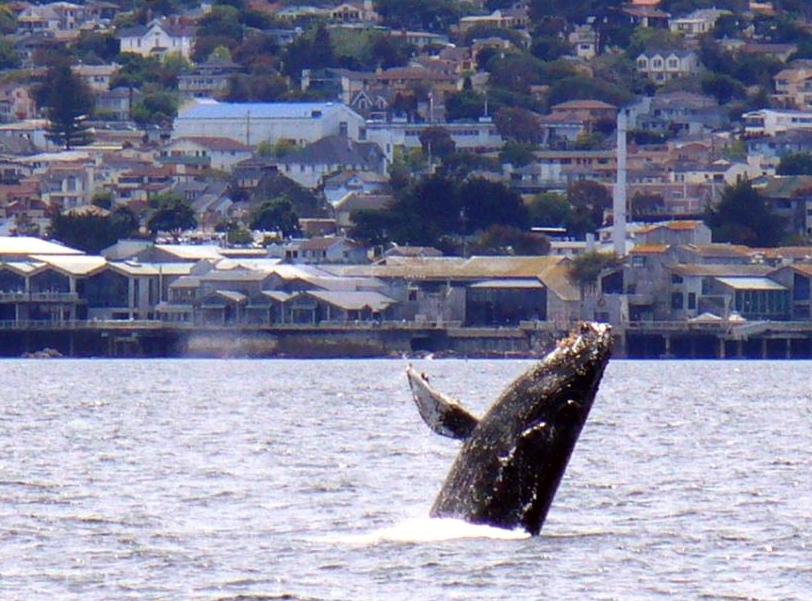
Years ago, Stanford University biologist Paul Ehrlich observed that, "There's a lifetime of entertainment in your own backyard, if you just take the time to look."
The ocean is the biggest backyard we have, and a close look at the life it contains will leave you wide-eyed in amazement.
I'm a marine biologist, and surrounded by ocean life every day on Monterey Bay. Even so, I take time each day to appreciate the incredible creatures with which we share this planet.
Photo courtesy of Richard Ryan
It's too easy to take them for granted.
The summer has brought great pods of humpback and blue whales to the bay, in numbers we haven't seen for years. Humpbacks are breaching off the back deck of the aquarium, and from shore you can occasionally see the towering spouts as blue whales exhale -- swimming to feast on an abundance of krill in the bay.
Down deep, there's another incredible parade of animals -- (many of which we're just now discovering).
For the past decade, scientists worldwide have participated in the Census of Marine Life. It's a comprehensive effort to document the animals and plants living in the oceans. The results of their work are nothing short of astonishing.
Simply by looking, they've discovered more than 30,000 species that we didn't even know existed. These life forms are found in rich coral reefs, in the deep sea, and around the underwater mountains called seamounts that redirect currents and are a magnet for nutrients that support an abundance of animals.
Using new tools, including robotic submersibles equipped with high-definition video cameras, they're documenting -- and sharing -- their discoveries. They've even set some of the animals to music in a compelling and inspiring video.
When they're not finding new life, researchers are learning more about the behavior of animals we've long known about. In just the past month, published studies have revealed that deep-water sixgill sharks travel in family groups, that blue whales in the North Pacific can tune their songs to the same pitch, and that tiny plankton may have a profound effect on the intensity and direction of hurricanes.
These studies come at the same time that other researchers are documenting what they believe is a 40 percent decline in plankton in recent decades as a result of global climate change. Plankton produce much of the oxygen we breathe, and form the base of the ocean food webs that support everything from commercially important fish to the blue and humpback whales now visiting Monterey Bay.
The more we learn, the more it seems we still have left to discover. That's why it's so important to invest the time -- and money -- in studying our oceans. If we don't give scientists an opportunity to learn what's out there, and how these living systems function, how can we make decisions that will protect and restore the health of our oceans?
If we knew more about the living systems in the Gulf of Mexico, we'd be able to assess the true impact of the Gulf of Mexico oil blowout. As it is, the one certainty is that there will be surprises -- many of them unpleasant -- from all the oil and dispersants that poured into Gulf waters for more than three months.
We must learn more so we're better prepared for the next disaster.
And we must learn more so that we will know, appreciate and be amazed by our neighbors in the oceans of Earth.